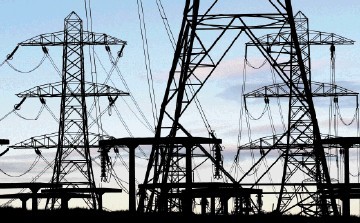
Scottish Energy Minister Fergus Ewing has called for the introduction of a cap on what he labelled a “ridiculous” charging system for use of power-transmission lines.
Speaking in Aberdeen yesterday, he said he had written to UK Energy Minister Charles Hendry to ask the Department of Energy and Climate Change (DECC) to consider capping Ofgem’s proposed charges for power-generation firms on Scottish islands.
Mr Ewing said Ofgem’s proposals were a step in the right direction for the mainland, but would penalise the islands where most renewable power generation is likely to be.
He said: “It seems ridiculous that the regime should penalise places in the UK and Scotland where renewable energy is best of all.
“Under the new system, the islands would be paying nearly eight times as much as the mainland for transmission charges, contrary to the shared objective of maximising energy potential from new renewable sources.
“We will be putting our views across that ridiculously high prices are unfair. If there is not a transmission-charge solution, DECC has promised to consider capping islands’ charges.”
Under proposals outlined by Ofgem, the current charging system, which sees those who generate power far from where it is needed are charged more, would stay in place, but the “load” power generators put on the system would be taken into consideration – benefiting renewable-energy producers.
Mr Ewing said this did not address the higher charges for the islands. An industry panel is to consider Ofgem’s proposals.
A spokesman for DECC said: “DECC welcomes Ofgem’s new approach, announced earlier this month, that looks to industry to develop changes to the charging regime that take account of the impact on overall network costs and decisions on investment in different generation technologies.”
He said the department was discussing transmission charging with the Scottish Government and representatives of the islands.
The spokesman added: “Decisions on the detail of the transmission charging methodology are a matter for Ofgem as the independent regulator.
“Government’s role is in setting the high-level policy framework within which the regulator’s approach will deliver.”
But Mr Ewing said an option to share the costs equally had been rejected by Ofgem on the grounds of it being more expensive.
During his visit to Aberdeen, he also visited Alba Power, based at Netherley, Aberdeenshire, following the firm winning the UK’s Great Small Company Performance Award at the Offshore Achievement Awards.
